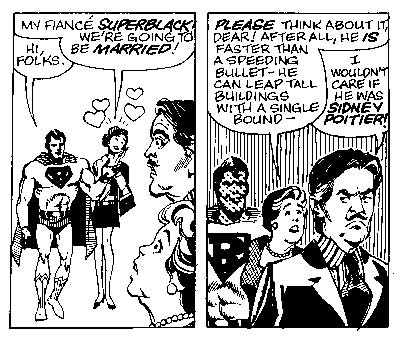
Yeah, you know who he is? The President of Venezuela who the Wall Street Journal is worried about because of his relationship with the Iranians, and who taunted the U.S. President this summer, after some proclaimed Christian suggested putting a hit on the Latin leader. After Pat Robertson made his views known about Katrina, the Supreme Court and Ariel Sharon, some folks started to suggest, as someone used to say, “That’s just crazy talk!” Mark Evanier wondered if Robertson isn’t crazy like a fox.
A couple buds of mine were wondering if the minister, now in his mid 70s, might not be “losing it”. Well, THAT can’t be it; the man is so fit that he can leg-press a ton!
Then, I read in Greg’s column about Harry Belafonte, while visiting Hugo Chavez (of course) attacking the American President. Greg wasn’t pleased. (I’d disagree with the assessment that Belafonte’s only a “calypso singer”; he was a vital player in the American civil rights movement. But as usual, I digress.)
So, I got to wondering: who DO we want to speak for us? If wrestler Hulk Hogan were to go out speechifying, we’d probably laugh, but if Jesse Ventura, once in the same profession, but most recently governor of Minnesota and a model for third party politics, wants to say something, there are people would listen. Or a B-actor makes a speech at the 1964 Republican convention and becomes governor of California a couple years later.
But it can’t be politicians we want. We don’t trust politicians.
Some people seemed to have trouble with performers speaking their minds, based on the popularity of these cards.
So who gets to speak? In this age of talk radio, reality TV, and blogs, it seems EVERYONE gets to speak. So Rev. Pat, Hugo, Harry the calypso guy, Barbra Streisand, Hulk Hogan, chat away. It’s our job to try to filter out the wheat from the chaff.





